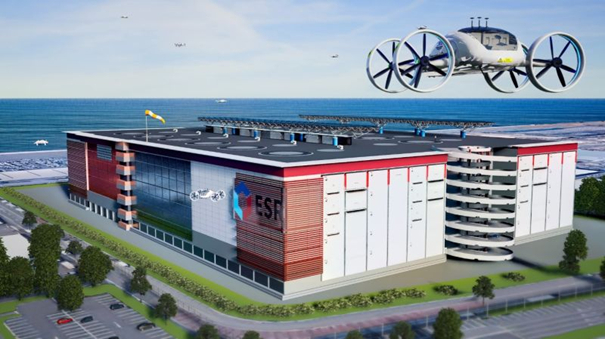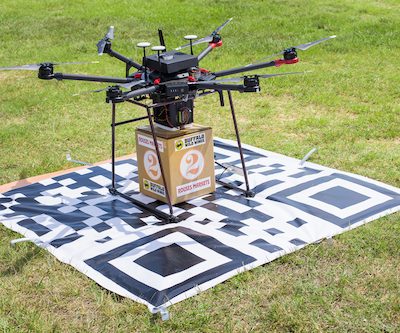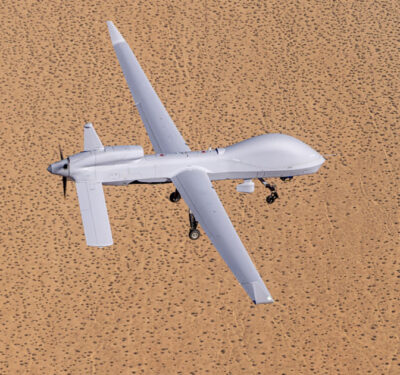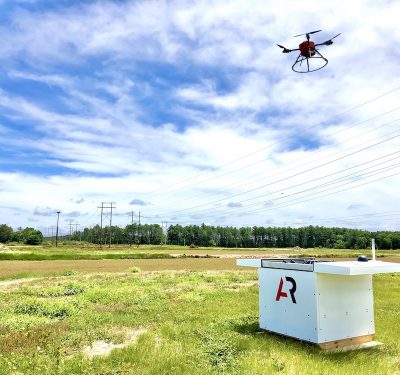
A rendering of ESR Cayman’s cargo drone logistics facility. Credit: ESR
Japan’s regulatory environment, commitment to UAV cargo delivery and maturing 5G infrastructure are prime reasons why Asia’s largest logistics real estate conglomerate has chosen the country to build what it claims will be “the world’s first cargo drone logistics facility.”
The new drone port will be part of ESR Cayman’s new 365,00-square-meter, nine-story distribution center, which is slated for completion in 2023. A starter fleet of at least 24 drones is slated to deliver as much as 14,000 tons of cargo daily to distribution nodes across the region.
ESR officials believe the project will show its tenants how autonomous eVTOL systems can revolutionize commercial cargo transport by quickly moving high-value, time-sensitive cargo directly from futuristic distribution facilities to their final destination. With advances in battery capacity extending eVTOL range, ESR believes it can be one of the first companies to make multiple drone deliveries in a single trip.
This capability will draw on Japan’s 2018 decision to encourage advancement of drone deliveries by scrapping the country’s BVLOS permit requirements and begin to allow BVLOS flights below 150 meters for drones with established safety records.
Partnering with ESR is VRCO, a UK-based eVTOL startup. The company is developing a luxury eVTOL quadcopter made of lightweight composites enhanced with graphene nanomaterials and equipped with Quanergy’s S3 solid state LiDAR sensor.
ESR Co-founder and Co-CEO Stuart Gibson said in a release that VRCO’s modeling and simulation capabilities will “aid ESR to make informed decisions with regard to the definition and adoption of eVTOL services along with the understanding of the required investments and adaptions to existing and future ESR properties to best leverage this.”
A test phase will examine how the drones will interact with cargo and recharge their batteries, and how a central command center can manage traffic during varied weather conditions and delivery demand. Non-technical challenges such as coordinating with local regulators and establishing emergency and safety procedures will be addressed too.
“The objective of this early phase is to discover what the variety of different capacity limits could be, what flights and routes we can service, and what the optimum operational model might look like,” said VRCO cofounder Daniel Hayes in release.
If successful, ESR will replicate the system throughout its facilities in Asia.






